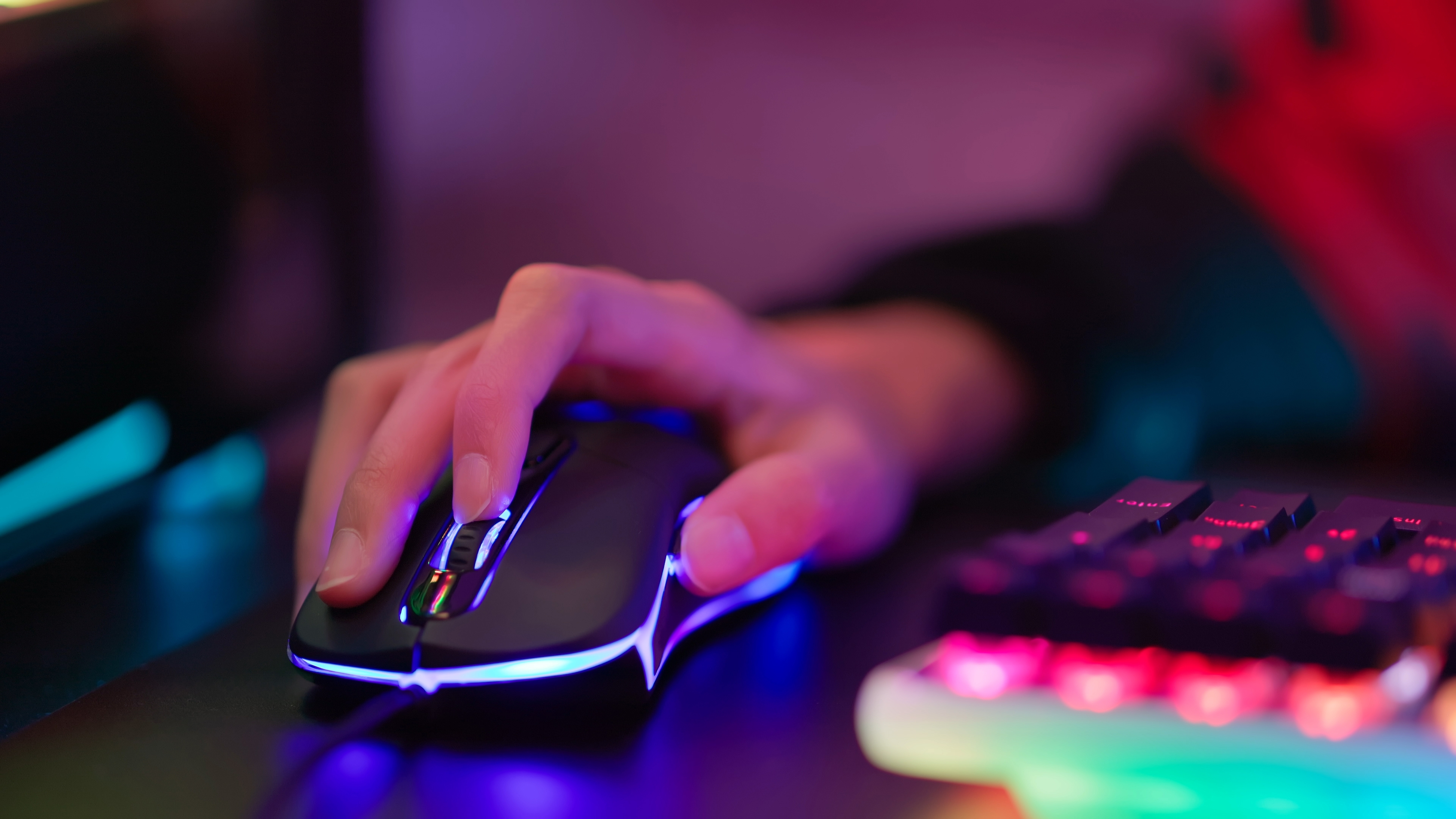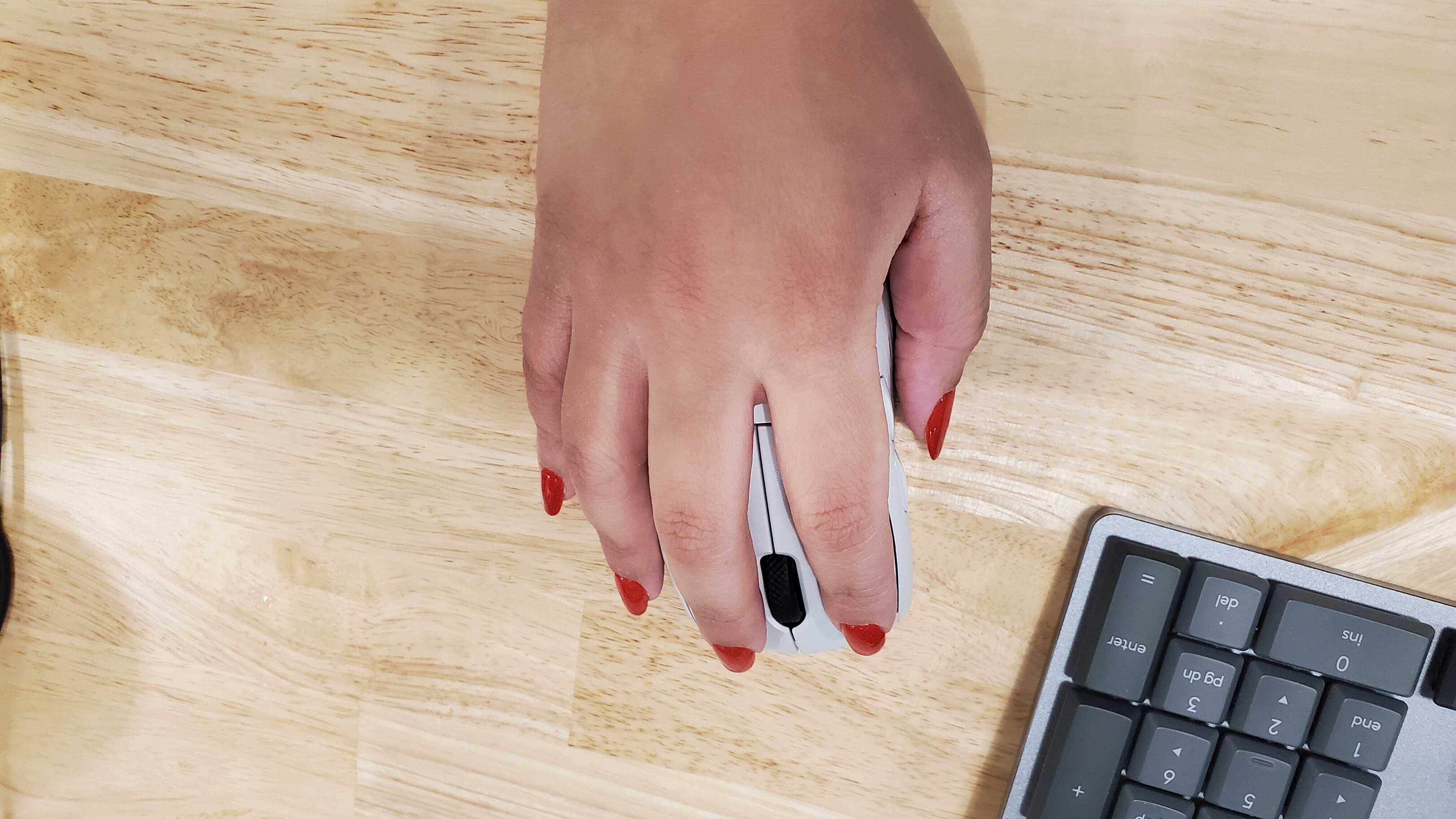Does DPI matter? Not as much as mice manufacturers want us to think
To all the mice with 30k+ DPI: who are you for?

Sign up for breaking news, reviews, opinion, top tech deals, and more.
You are now subscribed
Your newsletter sign-up was successful
New computer mice come out left and right, seemingly almost as quickly as actual mice pop up. Each attempts to bring fresh features, a new trendy design, or top-of-the-line performance for that extra edge over the competition.
And somewhere along the way in pursuit of paramount performance, mice manufacturers began kicking DPI ("dots per inch," or the internal sensitivity of the mouse) into hyper-ultra-overdrive.
Seriously, who are these 30,000+ DPI mice for?
Gamers don't play with 30K DPI

The most obvious choice for those who could possibly make use of these extreme DPI numbers is the gaming crowd. But if you enjoy the pastime yourself, you already know that just isn't the case.
I've had a passion for games and PC peripherals for as long as I can remember – seriously. Some of my earliest memories are of me sitting behind my sister, watching her navigate the golden era of online gaming, clicking heads in Counter-Strike: Source, and escaping Black Mesa in the 1998 bombshell that shook the world of PC gaming.
So, it's fair to say that I've gone through my fair share of gaming mice (not to mention I review them for a living). Never once have I gone beyond 3,200 DPI for any purpose other than smirking at how incredibly fast the mouse cursor can get. Typically, I hang out between 800 and 1,600, with 1,200 as my base setting, which SteelSeries says is right in the average range. Browse the Steam Forums on the topic, and you'll see plenty of actual players say the same thing.
Granted, I have seen a very small number of users mention DPI settings as high as 8,000. I can potentially see a high DPI like this, combined with low Windows cursor sensitivity settings, making sense for an ultrawide display like the Samsung Odyssey OLED G9 where you have so much ground to cover that it doesn't make sense to have a low DPI. But these users are the exception.
Sign up for breaking news, reviews, opinion, top tech deals, and more.
What about esports pros?

So the vast majority of casual gamers aren't going anywhere near 10,000 DPI, let alone 30,000. Maybe these extreme DPI mice are made for the pros instead.
But no, they're not.
I scoured website after website, interview after interview, and there are only a handful of esports professionals who use a DPI over 3,200. According to ProSettings.net, only 5% of Counter-Strike 2 professionals, who rely on their gaming mice more than anyone else in the world to perform at the best of their ability, play at 1,600 DPI or higher. 66% use just 400 DPI.
The two single highest DPI settings in all of CS2's professional scene are Jame of Virtus.Pro at 3,200 and El1an, who is currently a free agent, at 3,200 as well.
You could argue that many Counter-Strike 2 professionals got their start in competitive shooters on an old trackball mouse that wasn't capable of going any higher than 400 DPI, and have since stuck with what feels comfortable for them. There may be some merit to that, but as the scene evolves and new players enter the ranks, the average DPI settings remain largely the same.
Plus, when you move to other, newer games like Valorant or PUBG, you see a lot of the same settings there, too.
ProSettings mentions "Another important thing to note is that pretty much no pro VALORANT player uses a DPI that’s higher than 1600. Around half of all players are on 800 DPI, while around 40% are using 400 DPI."
So even professional esports players won't care if a mouse has ridiculously high DPI settings. They tend to stay right in line with casual gamers in the 400 to 1,600 range.
Maybe a high DPI is for work...if you want to be less productive

Lastly, I just don't think there are any real arguments to be made for DPI in the quintuple digits when it comes to work or school.
Again, if you have one of the widest monitors on the market, maybe approaching the 10K mark makes sense. But you're not going anywhere close to 30,000.
DPI is a measure of how far the mouse cursor travels based on every inch of real-world movement you make. So at a DPI of 1,200, moving the mouse one inch will translate to 1,200 dots (pixels) of movement. If you set your mouse to 4,000 DPI, you would jump across a 3840x2160 in less than an inch of movement.
Go ahead, try to adjust the volume on a YouTube video with a sensitivity like that. It's going to be a struggle.
You can accommodate this by adjusting the cursor sensitivity settings in Windows, but...why? What's the point? How accurately do you need to click on File Explorer?
I have no idea who these mice are meant for
Picking the best gaming mouse for you has almost nothing to do with DPI. As long as it covers the setting you're comfortable using, and perhaps a bit above, you should be more worried about comfortability, reliability, and reasonable pricing.
Ultimately, I think ultra-high DPI settings boil down to marketing ploys. If a manufacturer can come out with a headline that has a bigger, bolder number than their competitors, they'll do it. Even if no one asked for it.
And we didn't.
You might also like

Marcus Mears III is the Computing Reviews and Buying Guides Editor at TechRadar. He's been covering the latest in consumer tech for over 5 years, and he's gone hands-on with everything from the M2 MacBook Air to Valve's Steam Deck. Marcus is an advocate for Right to Repair laws and believes everyone can benefit from getting under the hood of your daily-driver tech. He'll also beat you in Texas Hold 'Em, too.